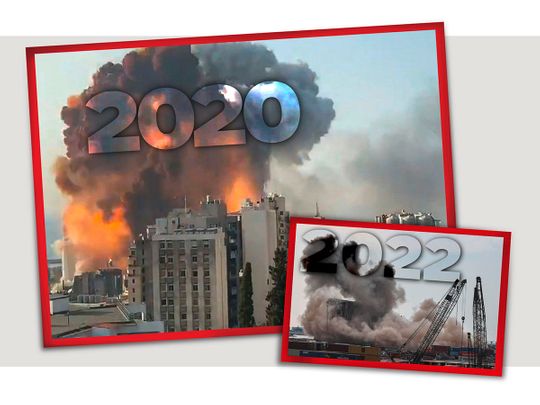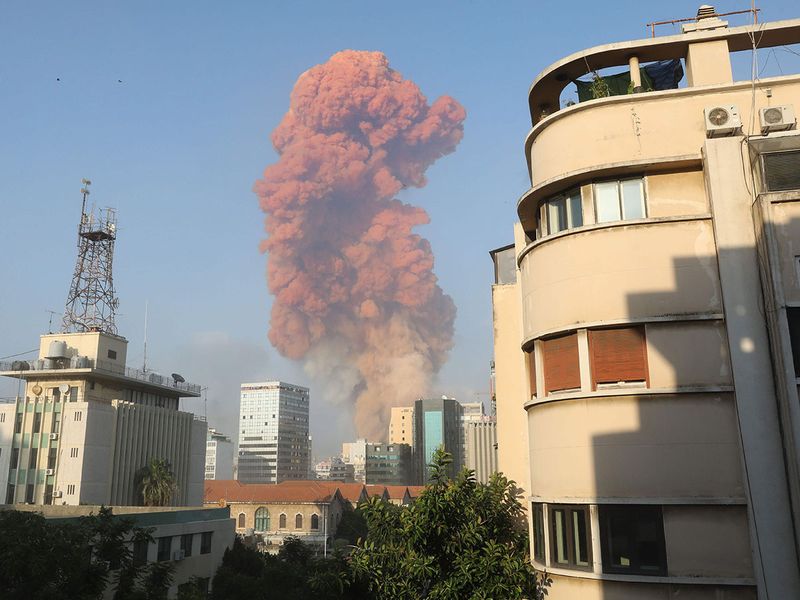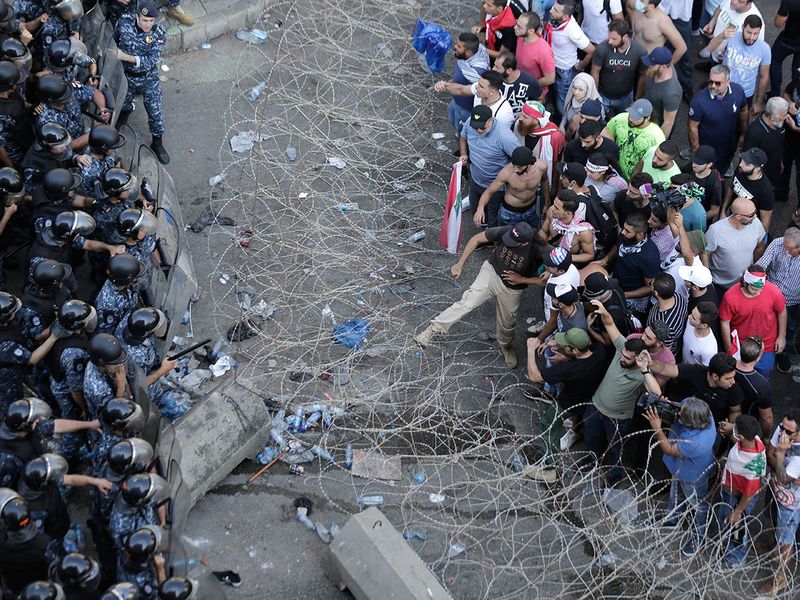
In Plato’s ideal city, set forth in The Republic, it is told that we owe respect to the living, but to the dead we owe only truth.
If that is so, then in Lebanon there are sundry dead who must be turning in their graves because what they are owed has not been paid and the accounts between them and those who caused their demise remain unbalanced.
"For the majority of the Lebanese people, last Thursday was a day to remember, a day to commemorate a tragedy and mourn its victims. It was exactly two years ago to the day when, following decades of mismanagement, dereliction of duty and corruption by governing authorities, one of the largest non-nuclear explosions in history pulverised the Beirut port, reduced to rubble large swaths of the capital and its surrounding suburbs, wounded 7,000 and left hundreds with permanent disabilities.
It was a tragedy made all the more horrific when it was revealed that several government officials had been warned that a fatal disaster would result if they failed to take action, yet tacitly accepted the risk to human life and did nothing.

Heaven knows, Lebanon had weathered loss in its 79-year history as an independent state, but the port explosion was of a different order, for it morphed into a collective trauma that so completely overwhelmed people’s ability to grasp, let alone cope with what had happened, and so shattered the basic fabric of society as to leave people numb. It was literally an earthshaking happening that led to a marathon of mourning.
As crowds gathered near the port on Thursday to mark the second anniversary of the blast, a deadly blaze, improbably, hit a dozen or so 157-foot grain silos on Lebanon’s waterfront, where the grain there reportedly had been let by the authorities to bake under a broiling sun and intense humidity, seemingly much as they had two years earlier let ammonium nitrate remain stored in drums, unattended and under similar conditions, rendering it a sure disaster waiting to happen.
Was it a macabre prank pulled by wicked demons to rattle people’s nerves or was it perhaps, as those teleologically minded might have claimed, providence pointing an accusing finger at the country’s ineffectual elite, an elite that had long opted to sacrifice the ideals of civil service at the altar of self-interest?
Let’s go with neither and suggest that the fluky incident simply showcased the dysfunction and the fraying at the edges of Lebanon’s political, social and economic system, as well as the failed quest by its desperate people to convince that elite to agree to a social contract between them that ensured equity, fair play, checks and balances, accountability and the rest of it.
Look, there are several Arab countries today, in the Mashrek and in North Africa, that are experiencing political turmoil, social malaise, economic misery and sectarian strife, but these are not the same, in degree or in kind, as those found in Lebanon.
What the Lebanese people are experiencing today — have, in fact, been experiencing for decades, as their polity sunk deeper and deeper into pandemonium — is no less than an emptying out at the core of their national soul, a negation of that fusion of form and content, means and meaning, that a people strive for and a nation provides.

No surprise then that these Lebanese folks will themselves tell you, and tell anyone else willing to listen, that their nation — once one of the most thriving in the Arab world, an enchanting little place on the edge of the Mediterranean Sea that had found it in itself to punch above its weight culturally, commercially and artistically — is now broken in back and spirit.
Meanwhile, news reports about the crowds outside the port on that commemorative day, gathered to remember together the victims of the blast, were truly evocative. A young woman, we were told by the Washington Post’s corresponded, Sarah Dadouch, led the gathering in an oath.
“I swear by their pure blood, by the tears of mothers and siblings and fathers and children and elders that we will not despair, we will not retreat, we will not comply, we will not indulge ... “
And with each promise, listeners, with upgraded arms, repeated, “I swear”.
Please read these outcries, as I read them, to have been the excruciating echo of grief by a people left alone to cry havoc, alone to rend their own flesh, alone to clamour to the top of the rock, away from the jarring misery of their quotidian lives.
And their leaders? Sorry, they’re out to lunch.
As for the truth, the truth about what happened that day, the truth owed the dead, well, the judicial probe that began in 2020, soon after the tragedy occurred, has long come to screeching halt.
In the end, it is, yes, true, that the Lebanese people’s collective trauma is not their fault, but healing it is their responsibility. Not fair, but, let’s face it, who said there’s justice in the world?
— Fawaz Turki is a journalist, lecturer and author based in Washington. He is the author of The Disinherited: Journal of a Palestinian Exile.








